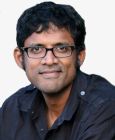Intelligence
Don't Be Judgmental, Be Discerning
What does it take to be discerning, but not judgmental?
Posted May 10, 2011 Reviewed by Jessica Schrader
Most of you probably know someone like my good friend Pia. She's the prototypical do-gooder, the kind of person for whom the phrase "wouldn't hurt a fly" was coined. She only sees good in others. So, for example, if you went to a music show with her and the band sucked, and you said, "Their music really sucked, didn't it?", she would say, "I thought they were quite good—but just in a different way." Pia is like Paula Abdul from American Idol.
I think the world could do with more people like Pia. However, there is one aspect of her that I find somewhat irritating: her desire to be nice to people makes her blind to the objective differences in people's abilities and talents. Put differently, in her desire to be non-judgmental, Pia has lost the ability to be discerning.
You may wonder what the difference between judgmental and discerning is. It might look like I am splitting hairs here, but as hairs go, this is an important one to split.
To me, discernment is the ability to notice objective differences among stimuli (activities, people, objects, etc.) along relevant dimensions. So, for example, a discerning person will recognize differences in the musical ability of singers (e.g., William Hung Vs. Taylor Hicks), whereas a non-discerning person will not. Similarly, a discerning person will recognize objective differences in lengths of lines, ferociousness of animals, and quality of wines.
So, how is discerning different from judgmental?
Before I get to this, let me first clarify that without the ability to discern, one wouldn't be able to get through life. This is because the ability to discern is fundamental to making decisions, and decisions are what allow us to get through life. We make an enormous number of decisions each day-starting with whether to hit the snooze button, to deciding which shirt to wear and what to eat for breakfast, to whether to set the alarm at night. According to Brian Wansink, author of Mindless Eating, we make about 200 decisions every day just in the context of food! Importantly, the quality of our decisions hinges on the quality of our discernments; for instance, making a good decision on which shirt to wear depends on the ability to discern differences in colors, styles, occasions, etc.
Everyone—including people like Pia—would agree that it is important to discern differences among objects and activities. What they won't as readily acknowledge, however, is that discerning differences among human beings is, if anything, even more important, since decisions involving humans—which person to assign to a project, or whom to invite to a party—arguably have the greatest impact on our well-being.
It is, of course, easy to understand why people like Pia find it difficult to acknowledge the importance of discerning differences among people. They want to think of themselves as nice people, and feel that noticing differences among people's abilities is tantamount to valuing some people as more worthy than others. But, there is an important fallacy in how Pia and people like her think: they assume that judging a person as inferior on one dimension is equal to judging them as inferior on other dimensions as well. To someone like Pia, to judge a person as a poor singer is to judge that person as an inferior human being.
Indeed, I suspect that it's not just people like Pia, but most of us also feel the same way: we believe that people's overall worthiness—as human beings—is tied to their prowess in various activities. But, for reasons I get into shortly, this need not be the case: we can value everyone as being equally worthy even as we recognize differences in their abilities. To understand how this is possible, let me first introduce my definition of judgmental.
A judgmental person is precisely the kind to go beyond discerning differences in people's abilities to make inferences about their overall worthiness. To a judgmental person, a bad singer is inferior not just on the dimension of singing, but is inferior on the more fundamental dimension of being human as well.
At first blush, it may seem that a discerning person would have no choice but to be judgmental. However, that is not true, and to see why, consider what we know about intelligence, and about what it takes to be successful.
Many of us equate intelligence with analytical, mathematical, and verbal intelligence-IQ. However, several researchers, most notably Howard Gardner, have found that intelligence comes in many varieties: social intelligence (the ability to get along with people), emotional intelligence (an important aspect of which is to stay motivated in the face of obstacles), musical intelligence, kinesthetic intelligence (which is important for athletes and dancers), spatial intelligence (important for architects), etc. What Howard Gardner and others have found is that, just as some people are higher in IQ than others, there is variation in terms of the other types of intelligence as well. As it turns out, there is no correlation between one type of intelligence and another type, which is to say that a person with high IQ is not necessarily high in the other types of intelligences. What this translates into is this: Given that there is no limit to the number of dimensions of intelligence, no one person dominates any other person on all dimensions of intelligence. In other words, no human being is "superior," overall, to any other. Indeed, one could even go so far as to argue that, when all dimensions of intelligences are considered, everyone is equally gifted in their own particular way.
But if everyone is equally gifted, why are some people more successful in life than others? Why do some people (e.g., Federer in tennis) master a domain while others flounder at anything they do?
There are two reasons for this. First, most of us never get to realize what our specific intelligence or "God-given" talent is. This is partly because we pay too much attention to what others (parents, teachers, and especially peers) say we should do (see video 1 and video 2 on social influence), and partly because our schools and universities don't focus on helping us discover our true talents. Second, as Simonton and Gladwell argued so eloquently in their respective books, Genius 101 and Outliers, success depends to a large extent on chance occurrences and circumstances that put us in the "right place at the right time" to take advantage of our talents, and most of us are just not lucky enough to have gotten the right breaks in life-breaks that, had they occurred, would have allowed our special talents to blossom.
To a person who recognizes both these aspects, namely that no one is superior to anyone else in terms of overall intelligence, and that success depends critically on chance events, it is possible to be both discerning and non-judgmental at the same time. But, even for such a person, it may be difficult to sustain being a "non-judgmental discerner," since most of us are so used to equating people's overall worthiness to their success that we are usually either discerning and judgmental or neither.
But a person who learns to be both discerning and non-judgmental will experience tremendous freedom in expressing his true, authentic, opinions about others-since he will not feel weighed down by the worry that he is being judgmental. Further, such a person will exhibit the twin qualities of being motivated to look for everyone's true-but perhaps hidden-talents, and of compassion towards those who haven't had the luck to make them successful. And finally, people will find it easier to take negative feedback from such a person since they will recognize that the feedback is not meant to be malicious.




